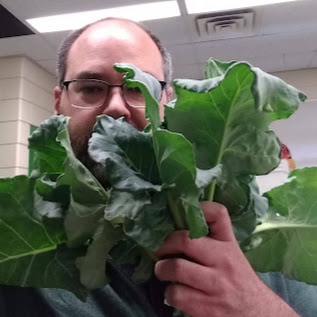In part 1 of our series, we explored how hydroponics can be used for food production and food literacy, we gained insights into choosing the best system for your school, and provided essential tips for system maintenance and troubleshooting common challenges. We also heard first hand experiences from two teachers who have successfully incorporated hydroponics into their classrooms. This dynamic session is sure to boost your knowledge and confidence to make the most of hydroponics in your school!
View Part 1 here
Meet the Speakers!
Scott McMillan
 Scott has taught at W.P. Wagner High School in Edmonton, Alberta for 8 years. He has been teaching a program called Natural Science (formerly Horticulture) for 5 years out of a 5000 sqft Greenhouse. Most major projects taking place in the Greenhouse have focused on growing food. The Natural Science program has tried out many types of hydroponics (NFT, DWC, Kratke, Dutch Bucket, and more) with varying levels of success. Composting is also an important part of the program’s daily duties and there are several composting systems set up inside and outside (pile composting, vermiculture, bin composting, bokashi, etc.)
Scott has taught at W.P. Wagner High School in Edmonton, Alberta for 8 years. He has been teaching a program called Natural Science (formerly Horticulture) for 5 years out of a 5000 sqft Greenhouse. Most major projects taking place in the Greenhouse have focused on growing food. The Natural Science program has tried out many types of hydroponics (NFT, DWC, Kratke, Dutch Bucket, and more) with varying levels of success. Composting is also an important part of the program’s daily duties and there are several composting systems set up inside and outside (pile composting, vermiculture, bin composting, bokashi, etc.)
Jordan Nicholas Kane
Simon Jacob Memorial Education Centre
Webequie First Nation, Webequie, ON
 Jordan Nicholas Kane, a Toronto Canadian father, educator, Christian, and musician, employs a unique teaching style and personal etiquette to deliver high-quality education. Jordan’s professionalism extends beyond education, encompassing personal life, business, and relationships. He is self-motivated, results-driven, and passionate about scholarly evolution, demonstrating discipline and professionalism. Jordan, a 20-year educator, aims to provide exceptional education by integrating the Ontario Curriculum with other disciplines for a comprehensive learning experience. Jordan plans to complete his Doctorate, teaching real-world skills like teamwork, cooperation, tolerance, perseverance, respect, and independent thinking in education to produce quality graduates.
Jordan Nicholas Kane, a Toronto Canadian father, educator, Christian, and musician, employs a unique teaching style and personal etiquette to deliver high-quality education. Jordan’s professionalism extends beyond education, encompassing personal life, business, and relationships. He is self-motivated, results-driven, and passionate about scholarly evolution, demonstrating discipline and professionalism. Jordan, a 20-year educator, aims to provide exceptional education by integrating the Ontario Curriculum with other disciplines for a comprehensive learning experience. Jordan plans to complete his Doctorate, teaching real-world skills like teamwork, cooperation, tolerance, perseverance, respect, and independent thinking in education to produce quality graduates.
